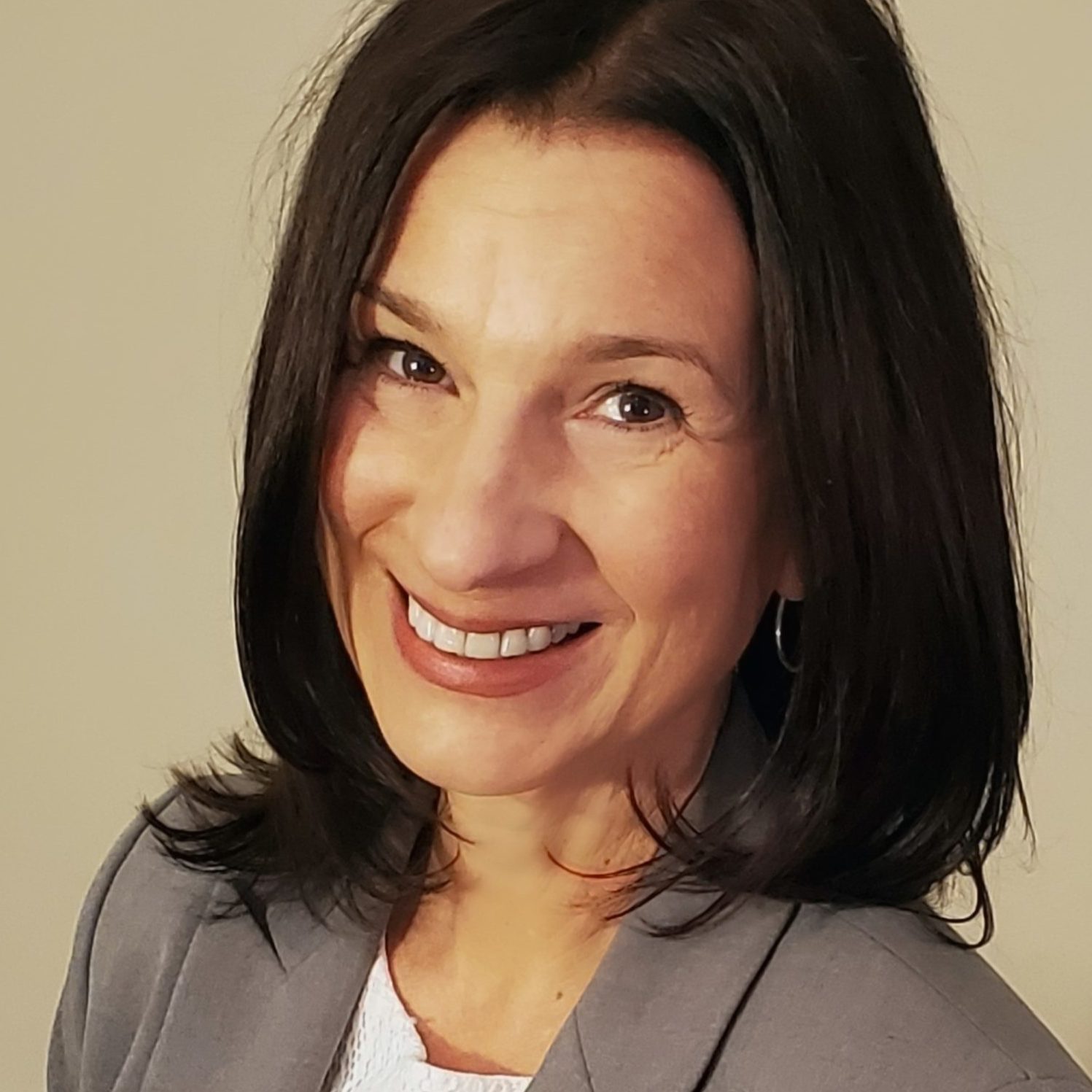Caregivers: The MVPs of vital support in breast cancer
Unsung heroes who provide essential care, strength, and emotional support in every step of the breast cancer journey
- 11/01/24
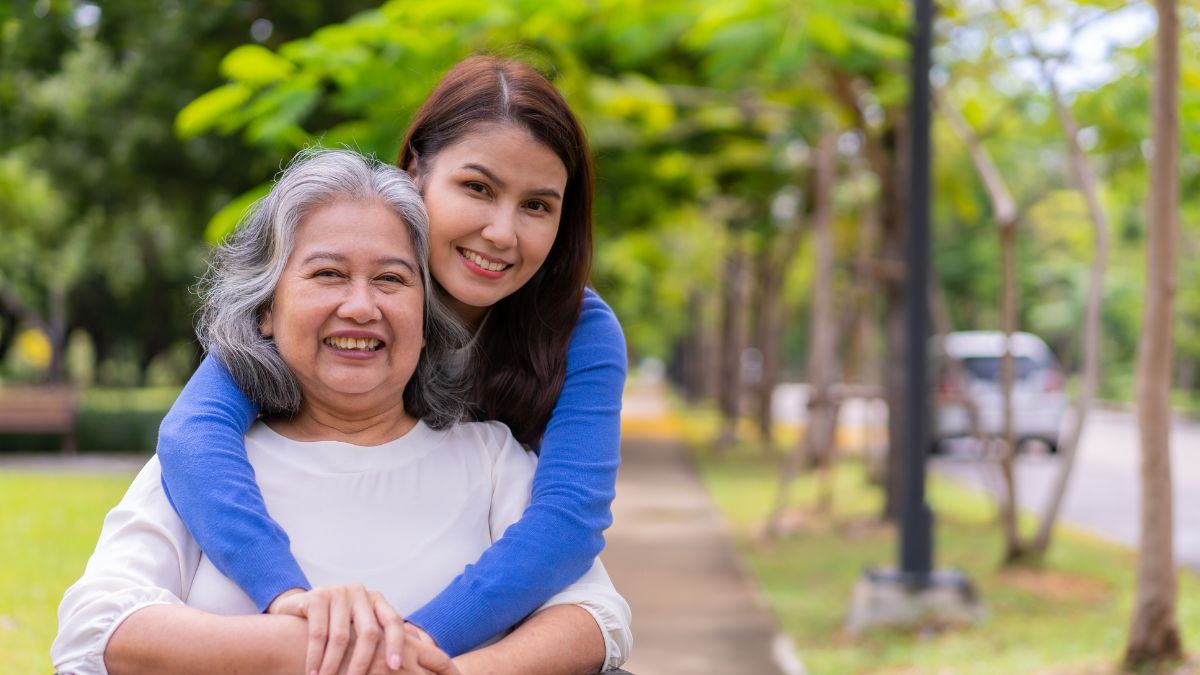
Lynn Folkman was a busy medical meeting planner in March 2009 when she received the call that she had breast cancer.
Just months earlier, she and her sister Deb had finished caring for their mother, who had passed away in November 2008. Still reeling from that loss, Lynn had expected that life would resume some normalcy. She wondered how she would tell her father, who had just lost his wife to cancer. The news was a devastating blow, and she was unsure what the future held. Lynn says, “It felt as though the ground had disappeared beneath my feet.”
Lynn’s experience is all too common for those impacted by breast cancer. The diagnosis often brings with it a wave of fears and uncertainties, not just about treatment, but about the future. How will they manage their daily lives? How will they cope with this new reality? Whether married or single, for Lynn--and LBBC advocates Camille, Jonise, and Miranda--the answer is caregivers.
A nation of caregivers
As of 2020, approximately 53 million caregivers in the United States offer unpaid care to a loved one or friend. This staggering figure, provided by the National Alliance for Caregiving and AARP, reflects the increasing demands placed on caregivers as healthcare needs grow. These caregivers offer more than emotional support—they also assist with both daily activities and critical medical tasks, such as managing medications and coordinating appointments.
A 2016 report from the National Alliance for Caregiving found that 88% of cancer caregivers take care of a relative, and 39% live in the same home. Caregiving for people with cancer usually lasts about two years, and during that time, their responsibilities are wide-ranging. They help with personal care, household chores, finances, and medical care.
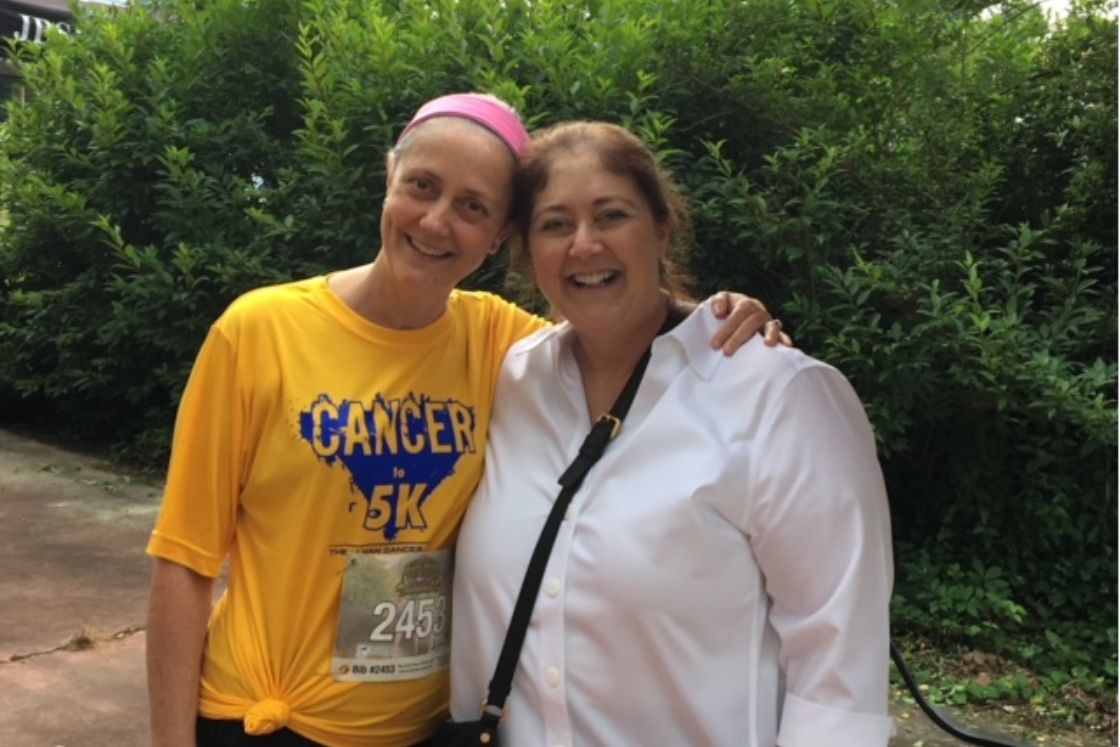
“There are no words to express gratitude for someone who carries you emotionally and does what needs to be done without question. It’s easier to be the caregiver, but when that care is directed at you, it takes your breath away.”
The power of community
Caregivers come from all walks of life and, as in Camille Lewis’s experience, can sometimes be unexpected members of one's community. But regardless of who they are or how they arrived in the role, they are always invaluable.
Camille was diagnosed with triple-negative breast cancer in May 2019, and her treatment began immediately. The nature of her cancer required an aggressive treatment plan: dose-dense chemotherapy, followed by a lumpectomy, and then radiation. A 45-year-old mother of two children, Camille didn’t initially consider herself someone who would need a caregiver. But as the reality of her treatment set in, she quickly realized just how crucial a caregiver would be, especially as someone without adult family to help.
Camille’s friends immediately stepped in to help during the initial treatment phases. When Camille needed invasive reconstruction of her right breast, the parents and members at Congregation Rodef Shalom, a Jewish preschool where she works, provided a meal train. Moved by Camille's situation, Bridgette and Sam Hoffman, parents of one of the preschool children, went above and beyond to help. Bridgette, a nurse, became Camille’s caregiver at that point, managing appointments, coordinating medication schedules, and ensuring she had everything she needed. They even offered Camille a room in their home, where she recovered after surgery. Every small victory, like her birthday celebration at a steakhouse, was a testament to their love and support.
Camille’s community had rallied around her. Reflecting on her experience, Camille says, "You could have the best oncology team in the world, but caregivers were as vital to my treatment plan, if not more so, than anybody else."
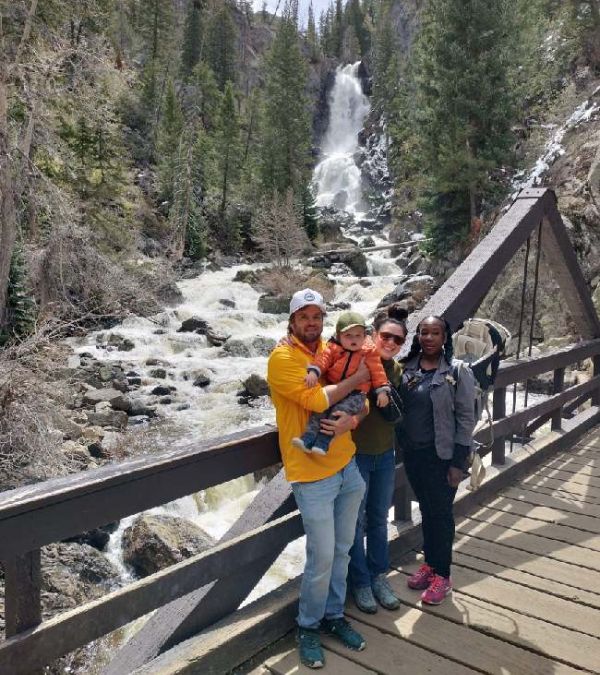
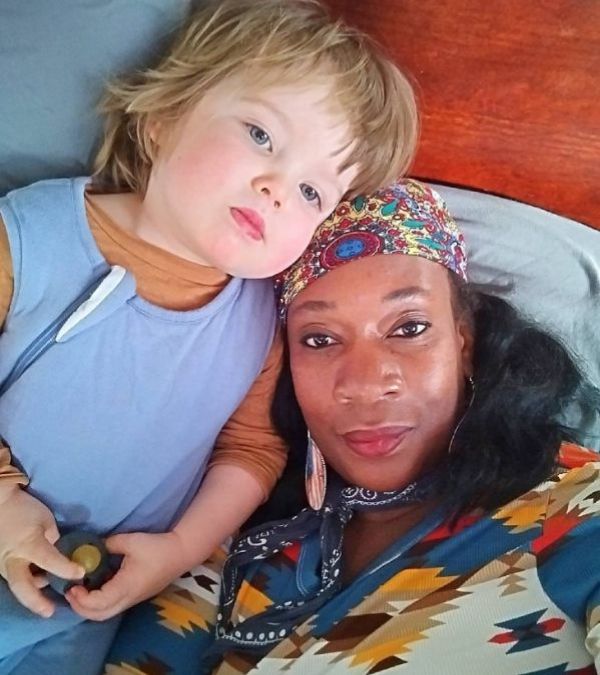
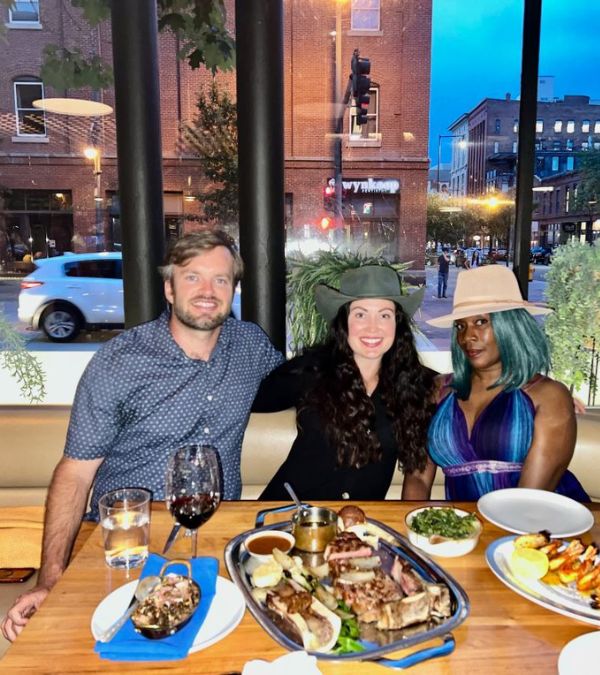
The challenges caregivers face
Caregiving doesn’t just involve physical care but also managing complicated medical tasks and navigating complex healthcare systems. Many face additional challenges when their workplaces aren’t fully supportive. Flexibility, such as remote work or compressed schedules, can alleviate some of the stress but isn’t always available to everyone. These challenges can become even more difficult when caregiving is tied to personal relationships who shoulder both emotional and practical responsibilities.
A shifting partnership
Caregiving roles, especially for spouses and partners, often involve a shift in their relationship. What begins as a new responsibility can evolve into a deeper, more complex relationship over time. For some, this change can feel awkward or challenging, but as Miranda Gonzales’s story shows, it can also be a source of strength and growth.
In 2015, at the age of 39, Miranda Gonzales was diagnosed with breast cancer. Married for 15 years and a stay-at-home mom, Miranda was used to managing the household while her husband worked. With her diagnosis, her husband took on a new role, becoming her primary caregiver. Despite his work obligations, he was there for every chemo appointment, offering unwavering support. Says Miranda, "Just because you're a husband or a partner, it doesn't mean you have to take care of your partner when they’re sick. But he did it with a smile on his face."
Together, they navigated the challenges of her treatment while managing the needs of their five children, ranging in age from 20 years old to young kids who struggled to understand what was happening. On Thanksgiving morning, her husband suggested they shave her head together to ease her anxiety over losing her hair, involving their daughters in the process. His unconditional love helped Miranda through the physical and emotional toll of cancer treatment.
After her treatment ended, life began to return to normal, but the transition back to their pre-diagnosis roles was not easy. She says, ”I've created a lot more independence for myself. My family was not always on board." As Miranda became more extroverted and independent, often attending events and speaking engagements, she spent less time at home. They both have had to adapt.
Through it all, Miranda remains focused on maintaining a loving and supportive relationship with her husband, understanding that their journey is ongoing. She encourages others in similar situations to prioritize communication, seek professional support, and always express appreciation for their caregivers. "Caregivers also have their own survivorship journey — and survivorship isn’t easy.”


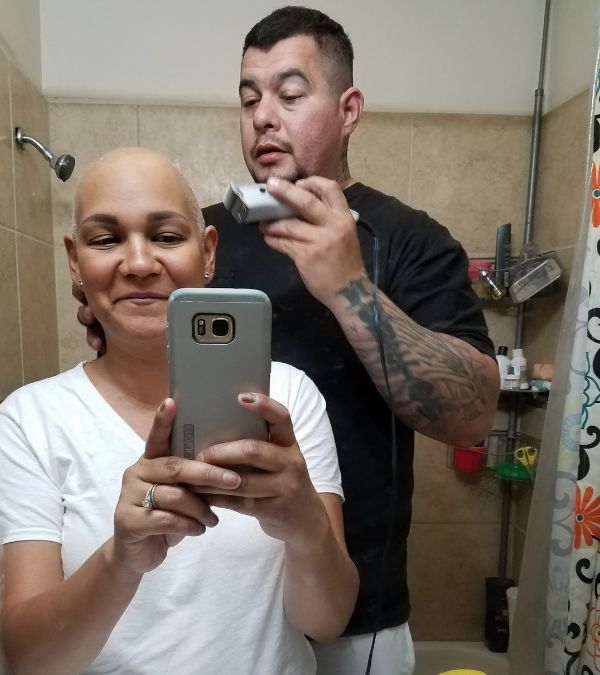
Balancing work and care
According to research from AARP, 67% of caregivers report difficulty balancing work with caregiving responsibilities. For those who work full-time while caring for a loved one, this often means adjusting work schedules, reducing hours, or even leaving the workforce temporarily.
Among the caregivers doing the balancing act is Milien Louis, husband of Jonise Louis.
At 35, Jonise felt she was in her prime. Newly married with a one-year-old son, she was passionate about her job as a budget manager for a local police department. But when she felt a lump in her breast, everything changed. After a series of scans and tests, her fears were confirmed: breast cancer. To complicate matters, Jonise discovered she was pregnant on the day of her first medical appointment. She chose to keep the news from her husband until his return from Haiti, where he was visiting his father who had suffered a stroke.
When Jonise learned that her cancer had metastasized to her liver, she was diagnosed as de novo metastatic breast cancer, which means that the cancer was already at stage IV (the most advanced stage) when it was first diagnosed. Jonise had stage IV breast cancer from the very beginning.
While stage IV disease is not curable, it is treatable. Despite the news, she chose to continue her pregnancy and began chemotherapy after her first trimester. Her husband was a constant source of support. He meticulously planned his work schedule around her appointments, often working overnight shifts to be there for her during the day. During the height of the pandemic, when he couldn't physically accompany her to appointments, he waited in the car with their son, texting her throughout her treatment. Every small act of kindness, like bringing her a green matcha latte before chemo, was a reminder of his love and dedication.
Jonise found immense comfort in her husband’s support, saying, "I feel like the support that I get from my husband works 10 times more than that of a therapist, because he's constantly there, and he knows my ins and outs." His commitment extended to the point of wishing he could "transplant" her cancer into himself, a sentiment that melts Jonise’s heart every time he says it.
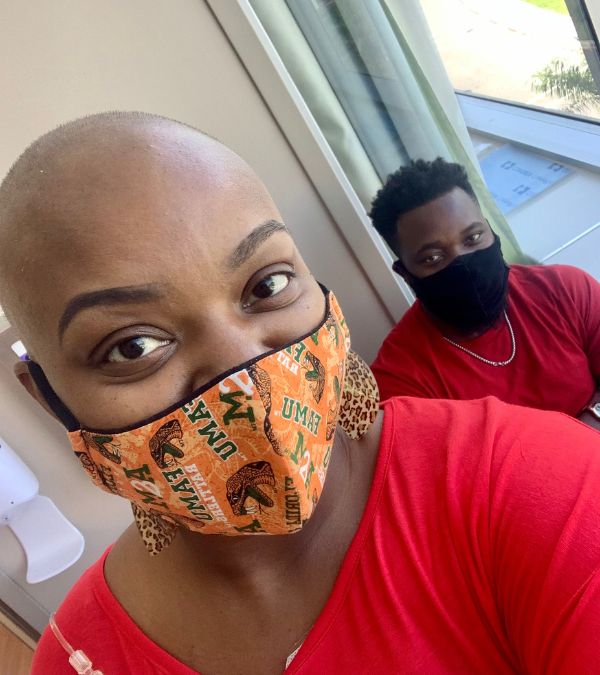
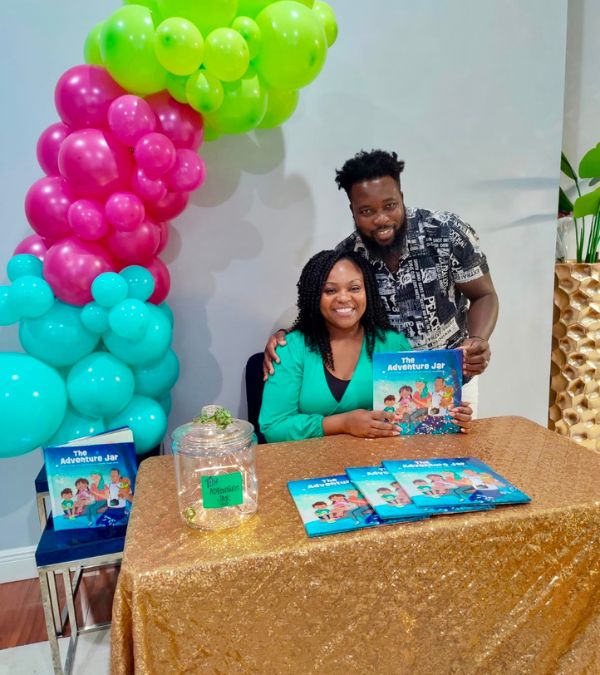
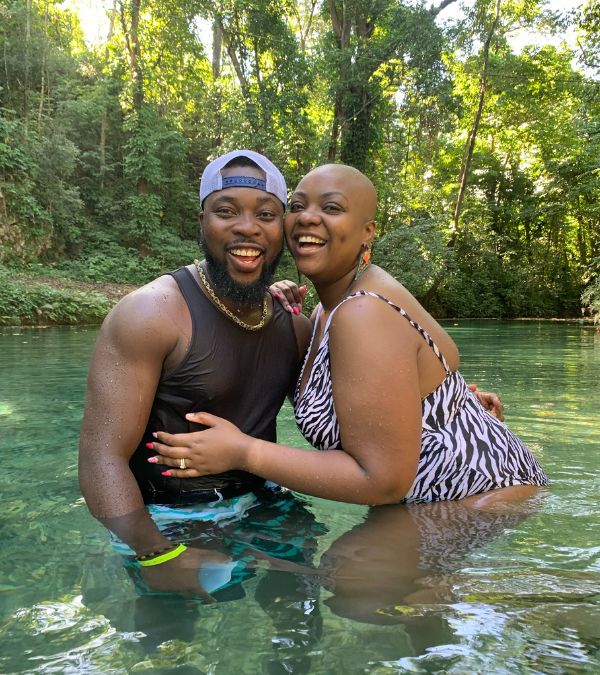
Full circle support
Caregiving is not just about providing physical assistance; it’s about offering emotional and psychological support that can make all the difference. While caregiving can be demanding, it's most often fueled by love and a deep sense of responsibility. In fact, research shows that 75% of caregivers are motivated by love, while others stated that a sense of duty as their driving force. This emotional foundation is what makes caregiving such a profound experience—one that often strengthens relationships over time, as in the case of Lynn and her sister Deb.
When Deb learned about Lynn’s diagnosis, she immediately stepped up. As a former nurse, Deb knew the importance of being there for her sister. She attended every appointment, managed the details of Lynn’s care, and provided emotional support. At home, Deb’s care extended to cooking meals, helping with bandages, and even sleeping on the floor to be close by. Deb also advocated for Lynn to seek additional resources. Lynn recalls, “She encouraged me to talk to other people who had breast cancer, recognizing her emotional support had limits since she hadn’t experienced it herself. She picked up the pieces when I couldn’t.” Their bond grew even stronger.
Lynn felt both guilt and gratitude for her sister’s help, but, as she says, “There are no words to express gratitude for someone who carries you emotionally and does what needs to be done without question. It’s easier to be the caregiver, but when that care is directed at you, it takes your breath away. It’s hard to accept help, especially when it feels like a role reversal in our relationship. I worried about how long it would last and if it would change our relationship forever.”
Years later, their roles changed again as they cared for their ailing father. Deb’s nursing background was invaluable once more as she managed the healthcare aspects of their dad’s care, while Lynn handled the logistics and emotional support. Together, they honored their father's final days with the same dedication and love that had seen them through so many challenges before. Their journey as caregivers had come full circle.
Lynn’s experience with breast cancer and her caregiving experiences changed her priorities. She reevaluated what mattered to her, leading her to join LBBC in 2012 as manager of community engagement.
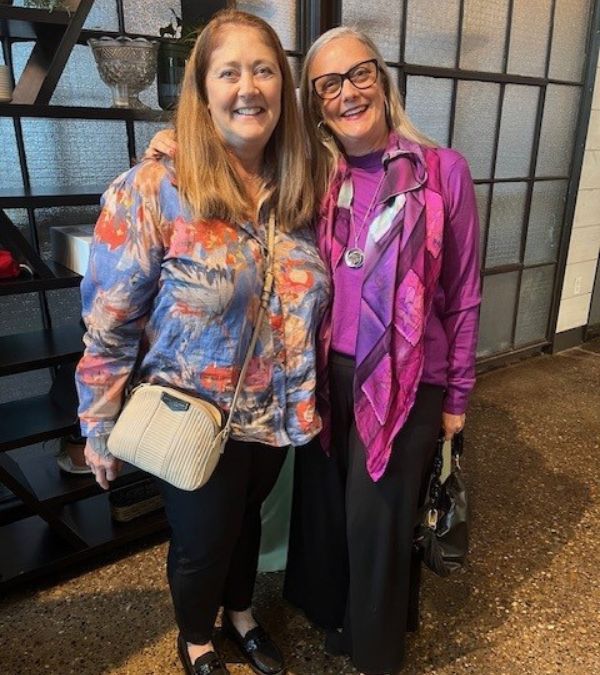
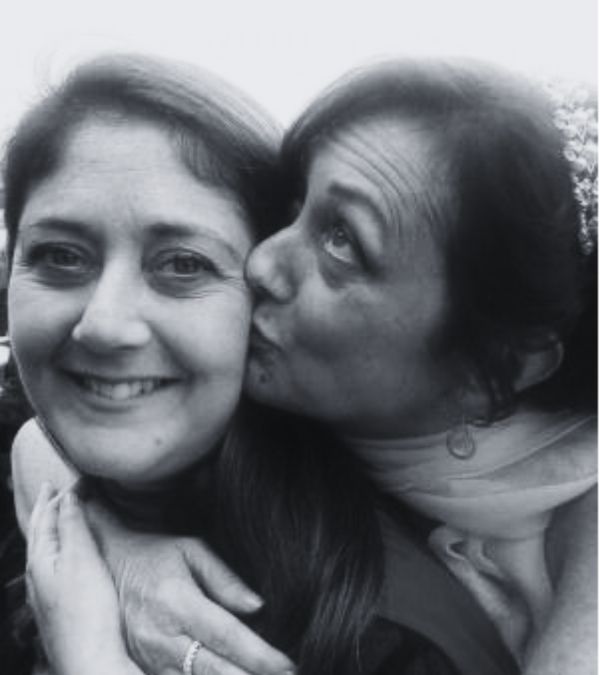
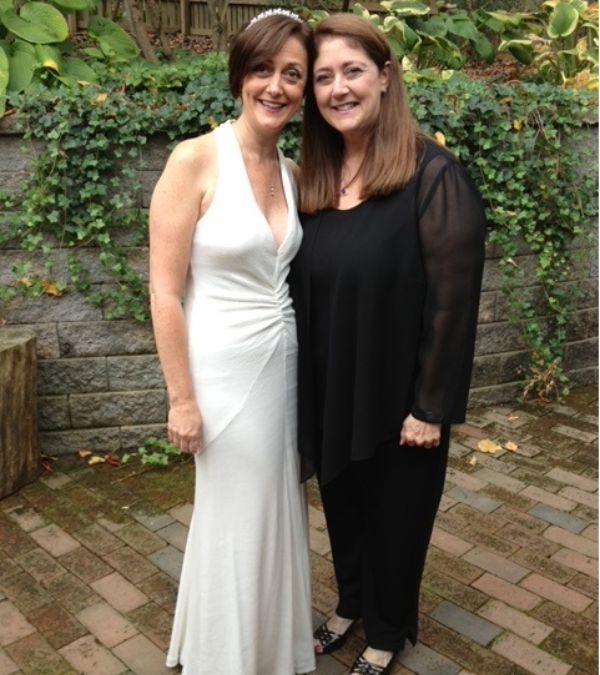
Final thoughts
Caregiving is not always easy, but it can strengthen relationships, provide opportunities to give back, and reveal hidden strengths. As Jonise says, "Caregivers, you all are the MVPs. You provide so much more than physical support -- it’s the emotional support that makes a caregiver truly special." To provide that support, it’s important for caregivers to take care of themselves, check in with their emotions, and seek support when needed. With contributions as important as any medical treatment, it is the power of these relationships—the love, family, and friendship—that truly makes the difference.
To support your well-being as a caregiver, remember that taking care of yourself is essential. For practical self-care tips and strategies, visit Prioritize Yourself: Self-Care Tips for Breast Cancer Caregivers.
To learn about essential resources for caregivers, including financial help, support services, and practical tools, read Caregiver resources: Supporting you as you support others.
This content is supported by
Stay connected
Sign up to receive emotional support, medical insight, personal stories, and more, delivered to your inbox weekly.



